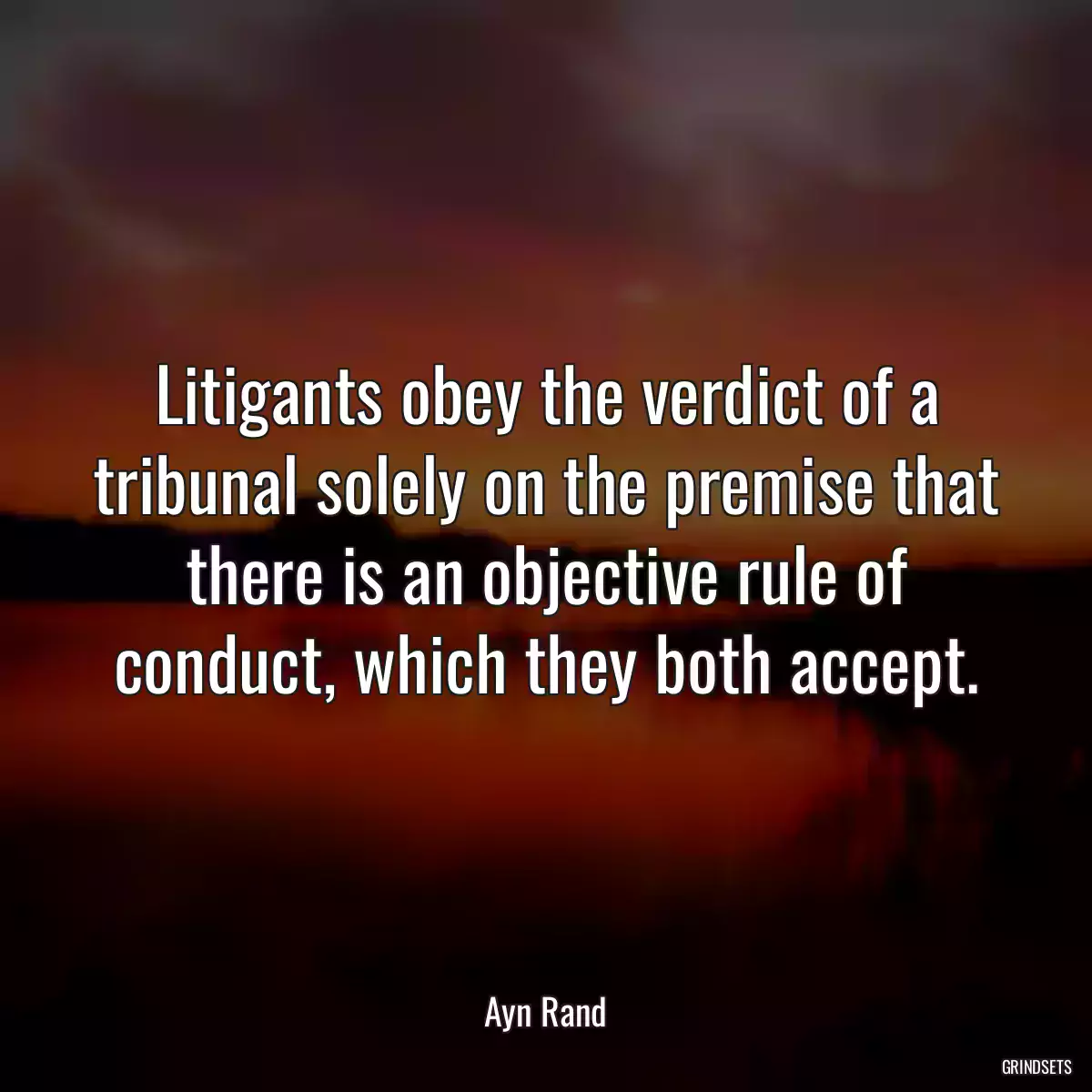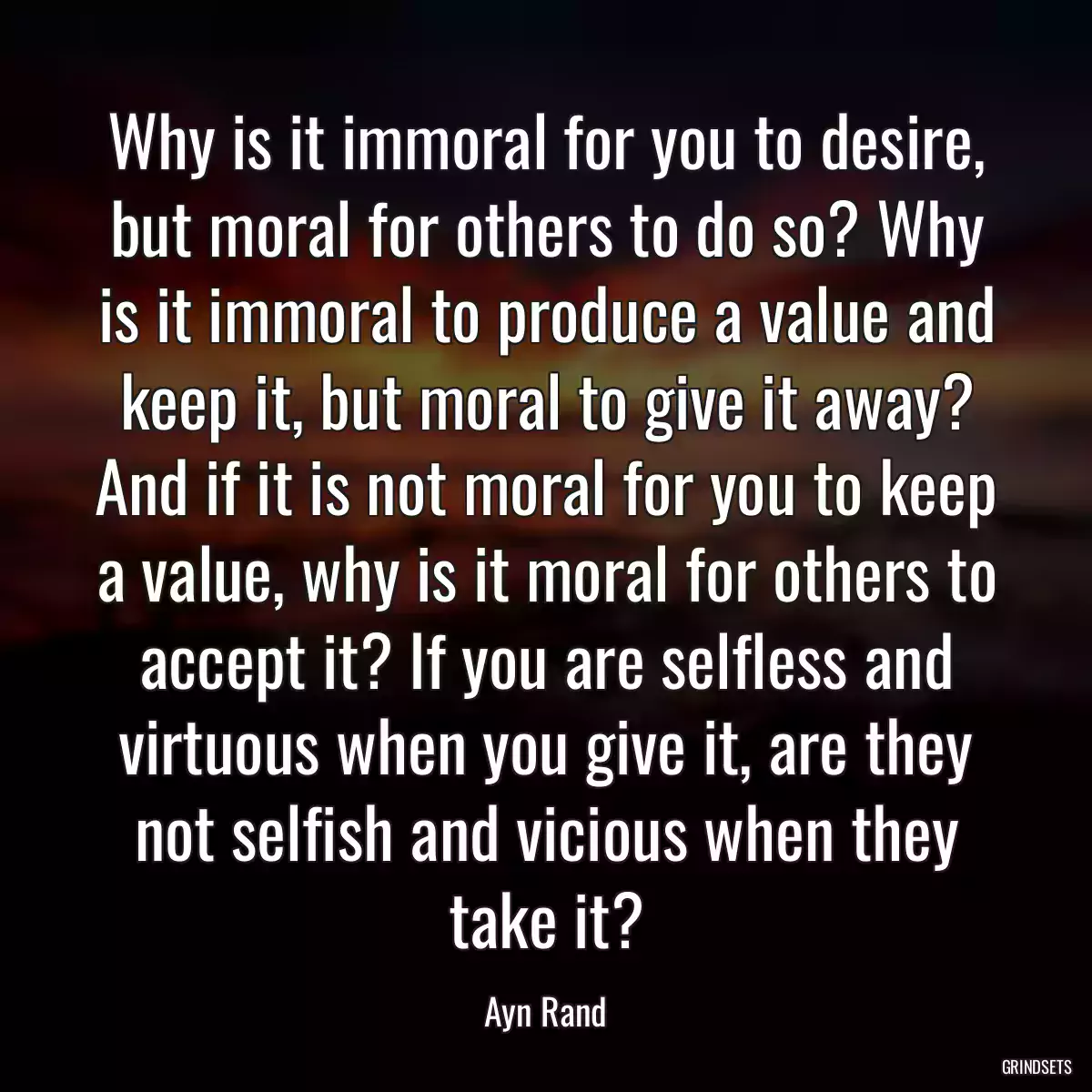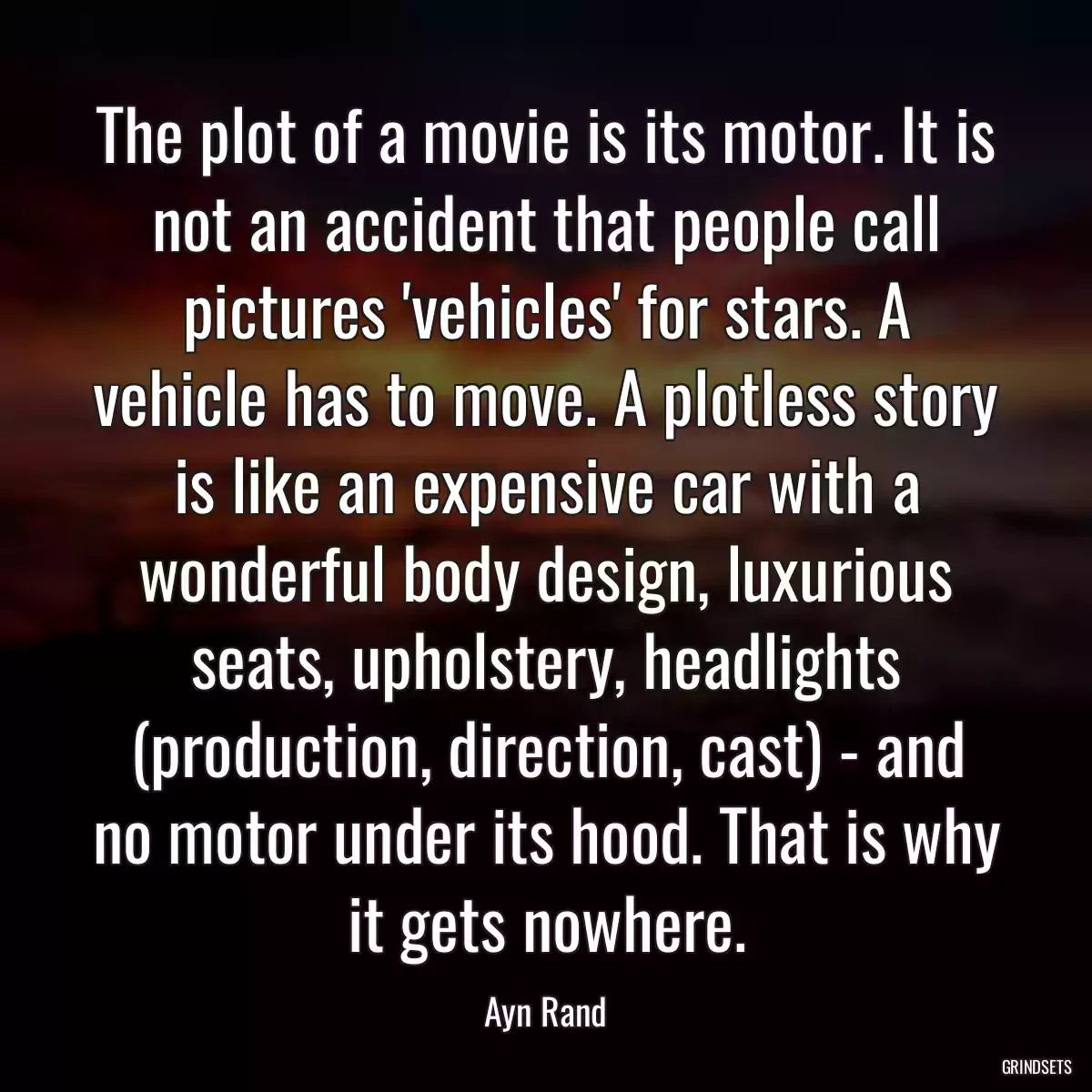
Quotes Ayn Rand - page 6
Find dozens of Ayn Rand with images to copy and share.

If a man speculates on what 'society' should do for the poor, he accepts thereby the collectivist premise that men's lives belong to society and that he, as a member of society, has the right to dispose of them...that psychological confession reveals the enormity of the extent to which altruism erodes men's capacity to grasp the concept of rights or the value of an individual life.
The worst guilt is to accept an undeserved guilt — and that is what you have been doing all your life.
A collective mind does not exist. It is merely the sum of endless numbers of individual minds. If we have an endless number of individual minds who are weak, meek, submissive and impotent – who renounce their creative supremacy for the sake of the whole and accept humbly that the whole’s verdict – we don’t get a collective super-brain. We get only the weak, meek, submissive and impotent collective mind.
You may also like
You'll get everything society can give a man. You'll keep all the money. You'll take any fame or honor anyone might want to grant. You'll accept such gratitude as the tenants might feel. And I - I'll take what nobody can give a man, except himself. I will have built Cortlandt. - Howard Roark
I can accept anything, except what seems to be the easiest for most people: the half-way, the almost, the just-about, the in-between.
It's good to suffer. Dont complain. Bear, bow, accept - and be grateful that God has made you suffer. For this makes you better than the people who are laughing and happy.
Everything has strings leading to everything else. We're all so tied together. We're all in a net, the net is waiting, and we're pushed into it by one single desire. You want a thing and it's precious to you. Do you know who is standing ready to tear it out of your hands? You can't know, it may be so involved and so far away, but someone is ready, and you're afraid of them all. And you cringe and you crawl and you beg and you accept them--just so they'll let you keep it. And look at whom you come to accept.
What is kinder--to believe the best of people and burden them with a nobility beyond their endurance--or to see them as they are, and accept it because it makes them comfortable?

Why is it immoral for you to desire, but moral for others to do so? Why is it immoral to produce a value and keep it, but moral to give it away? And if it is not moral for you to keep a value, why is it moral for others to accept it? If you are selfless and virtuous when you give it, are they not selfish and vicious when they take it?
... reason accepts no commandments.
If I were to speak your kind of language, I would say that man's only moral commandment is: Thou shalt think.
But a 'moral commandment' is a contradiction in terms. The moral is the chosen, not the forced; the understood, not the obeyed.
The moral is the rational, and reason accepts no commandments.
The fact that a man has no claim on others ... does not preclude or prohibit good will among men and does not make it immoral to offer or to accept voluntary, non-sacrificial assistance.
There can be no compromise between freedom and government controls; to accept 'just a few controls' is to surrender the principle of inalienable individual rights and to substitute for it the principle of the government’s unlimited, arbitrary power, thus delivering oneself into gradual enslavement. As an example of this process, observe the present domestic policy of the United States.
Why had we let it go? Why had we both been condemned...to an exile among dreary strangers who had made us give up all desire for rest, for friendship, for the sound of human voices? Could I now reclaim a single hour spent talking to my brother, Philip, and give it to Ken Daggart? Who made it our duty to accept, as the only reward for our work, the gray torture of pretending love for those who roused nothing but contempt?
To abstain from condemning a torturer, is to become an accessory to the torture and murder of his victims.
She felt a board indifference toward the immediate world around her toward other children and adults alike. She took it as a regrettable accident to be borne patiently for a while, that she happened to be imprisoned among people who were dull. She had caught a glimpse of another world and she knew it existed somewhere, the world that had created trains, bridges, telegraph wires and signal lights winking in the night. She had to wait she thought, and grow up to that world. - Dagny Taggart
That something happened to you is of no importance to anyone, not even to you. The important thing about you is what you choose to make happen - your values and choices. That which happened by accident - what family you were born into, in what country, and where you went to school - is totally unimportant.
You may also like

The plot of a movie is its motor. It is not an accident that people call pictures 'vehicles' for stars. A vehicle has to move. A plotless story is like an expensive car with a wonderful body design, luxurious seats, upholstery, headlights (production, direction, cast) - and no motor under its hood. That is why it gets nowhere.
The great creators - the thinkers, the artists, the scientists, the inventors - stood alone against the men of their time. Every great new thought was opposed. Every great new invention was denounced. The first motor was considered foolish. The airplane was considered impossible... But the men of unborrowed vision went ahead. They fought, they suffered and they paid. But they won.